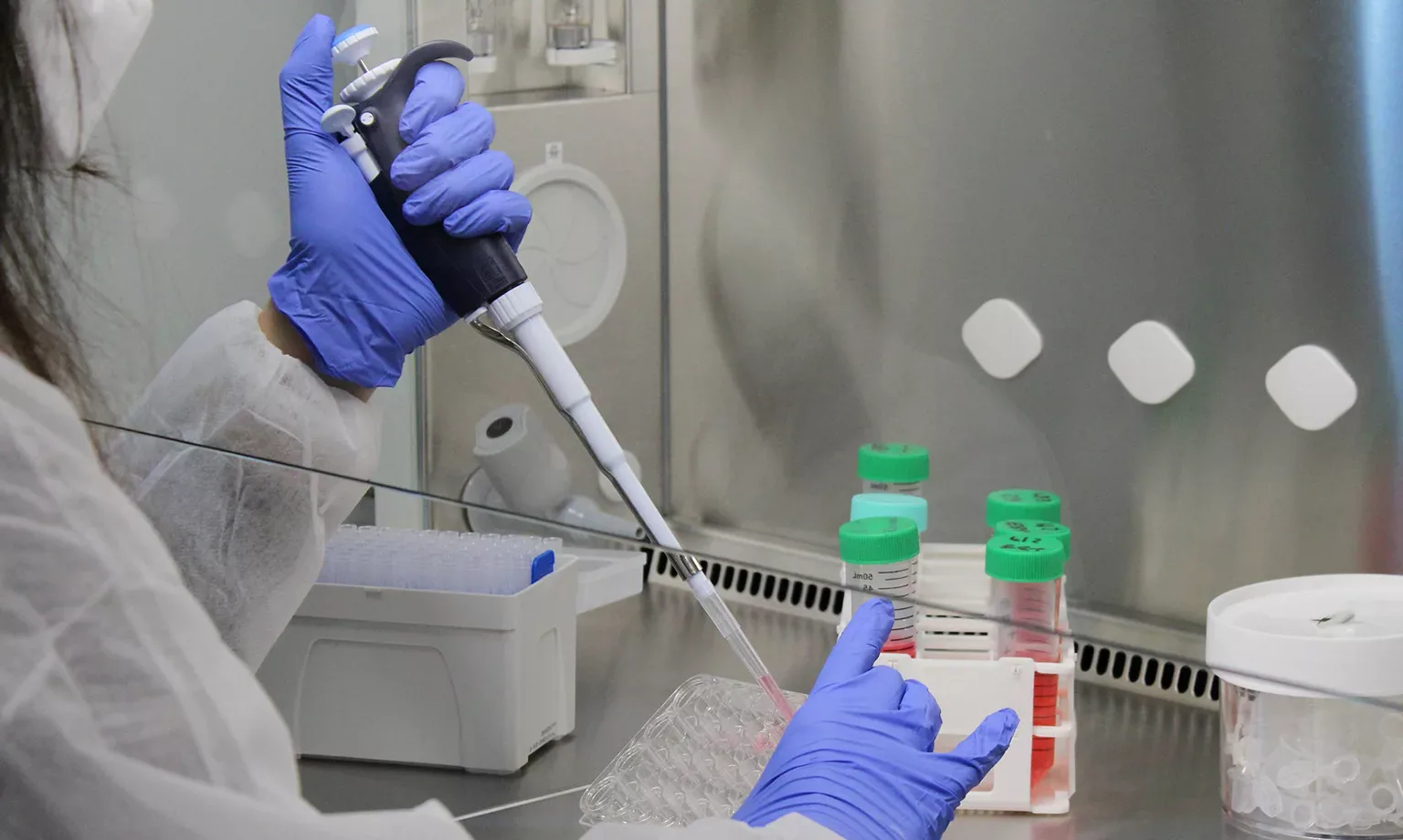The biotechnology industry in Italy is one of the most innovative in the world, having a major influence on the global bioeconomy.
- ITALIAN BIOTECHNOLOGY INDUSTRY SPOTLIGHT
- Q&A WITH PIERLUIGI PARACCHI, EXECUTIVE COMMITTEE MEMBER, FEDERCHIMICA ASSOBIOTEC
- Firstly, could you talk us through the origins of Federchimica Assobiotec and what led to its inception?
- Since inception, how has Federchimica Assobiotec developed and progressed in terms of its key objectives and the message it tries to get across?
- What do you find most interesting about the BioTech industry in Italy currently?
- On the other hand, what are the industry’s biggest challenges?
- How has the BioTech industry changed since the association’s inception?
- Can you elaborate on how the COVID-19 pandemic affected the industry?
- What trends are currently transforming the BioTech industry in Italy?
- How do you see Federchimica Assobiotec and the BioTech industry developing over the next five years?
- FEDERCHIMICA ASSOBIOTEC PARTNERS
ITALIAN BIOTECHNOLOGY INDUSTRY SPOTLIGHT
Since the first recorded form of modern biotechnology (BioTech) was conducted in 1973 with the genetic engineering of rare bacteria, the industry has catapulted to unprecedented levels. Indeed, BioTech has become paramount to modern healthcare and scientific R&D, as it permeates across many fields, including healthcare, scientific research, pharmaceuticals and tech companies.
In Europe, the BioTech industry continues to evolve through many breakthroughs, particularly in brain and neuronal therapies, which represent 50 percent of BioTech businesses in Europe.
Within Italy, there continues to be a resurgence in the aid provided by BioTech developments, as the industry works to positively serve the needs of Italian healthcare services and wider society. By the end of 2021, there was a total of 790 BioTech firms operating in the country, with R&D investment increasing by seven percent between 2019 and 2020.
The compiled impacts of the COVID-19 pandemic further highlighted a pressing need for medical research, which helped to provide the necessary tools to predict and prevent further occurrences. This is reflected by the fact that human healthcare is the largest sector active in the Italian BioTech industry, currently representing over 48 percent of the market segment.
Additionally, in line with greater climate change initiatives, Italy has witnessed an increase in industry and environmental BioTech, achieving a growth of 29 percent between 2014 and 2021, with similar growth projected in the R&D field.
With such an indispensable role, BioTech firms across the country are in need of a collaborative force and representation if the industry is to continue to flourish.
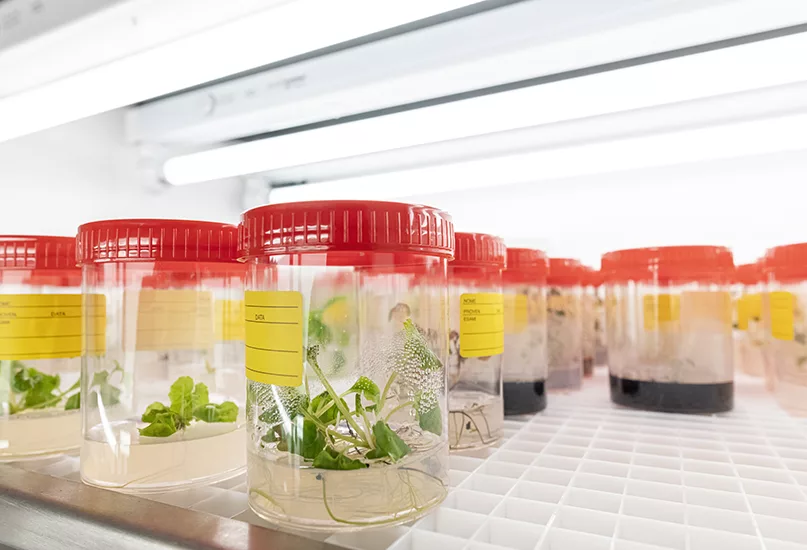
Q&A WITH PIERLUIGI PARACCHI, EXECUTIVE COMMITTEE MEMBER, FEDERCHIMICA ASSOBIOTEC
Championing the voices of the Italian BioTech field, Assobiotec, the Italian Association for the Development of Biotechnology, part of Federchimica (Federchimica Assobiotec) facilitates a forum of discussion, leading the industry to a sustainable and safer society
Founded in 1986, Federchimica Assobiotec represents over 100 companies and science and technology parks, across the healthcare and bioeconomy sector. As a member of its Executive Committee and CEO of Geneta Science, Pierluigi Paracchi tells us how the association has developed since its founding.
Firstly, could you talk us through the origins of Federchimica Assobiotec and what led to its inception?
Pierluigi Paracchi, Executive Committee Member (PP): Federchimica Assobiotec is the Italian bioindustry association. Nowadays, it represents and supports not only BioTech firms, but also science and technology parks involved in the life science and bioeconomy fields.
The association brings together a variety of firms with a diverse range of applications; they all have BioTech in common as a hallmark component, which provides an engine for innovation.
Federchmica Assobiotec was first established in 1986 as part of Federchimica, the Italian Federation of the Chemical Industry. Since the beginning, its mission has been to encourage and support BioTech innovation with the ultimate goal of helping progress our country.
With the same aim, Federchimica Assobiotec is a founding member of the European Association for Bioindustries (EuropaBio) and the International Council of Biotechnology Associations (ICBA) and, through Federchimica, the company is a founding member of the Italian National Cluster of Life Sciences (ALSISEI) and the Italian National Cluster of Circular Bioeconomy (SPRING).
As a proactive organisation, Federchimica Assobiotec is also an ongoing and active participant in the Blue Growth Cluster and Italian National AgriFood Cluster (CLAN) activities.
Since inception, how has Federchimica Assobiotec developed and progressed in terms of its key objectives and the message it tries to get across?
PP: We strongly believe that Italy, through the BioTech sector, can have an instrumental impact on building a future in a sustainable way, whilst addressing the more urgent needs of civil society in the sectors of public health, environment, agriculture and food. We also believe that BioTech is a stimulus in the promotion of economic and social growth and employment opportunities.
Since our inception, we have understood the value of a vibrant and attractive ecosystem. From quality education to technology transfer, every step of the journey is fundamental to building a strong national ecosystem.
What do you find most interesting about the BioTech industry in Italy currently?
PP: The Italian BioTech industry has lights and shadows. It is true that our country is recognised for its excellence in research, human capital and production. Italy is a world leader in the number of research publications and citations per researcher. Our country shows a strong drive for innovation in areas such as biochemistry, genomics, and molecular biology.
In the meta-sector of BioTech, Italy boasts start-ups and companies that are at the height of modernisation in various fields of application, including health, through the production of new medicines, vaccines and diagnostic products, with excellent results in the export of these items. Regarding bioeconomy, BioTech is an important driver of innovation for both agricultural and industrial sectors, representing a new model to join economic growth and sustainability.
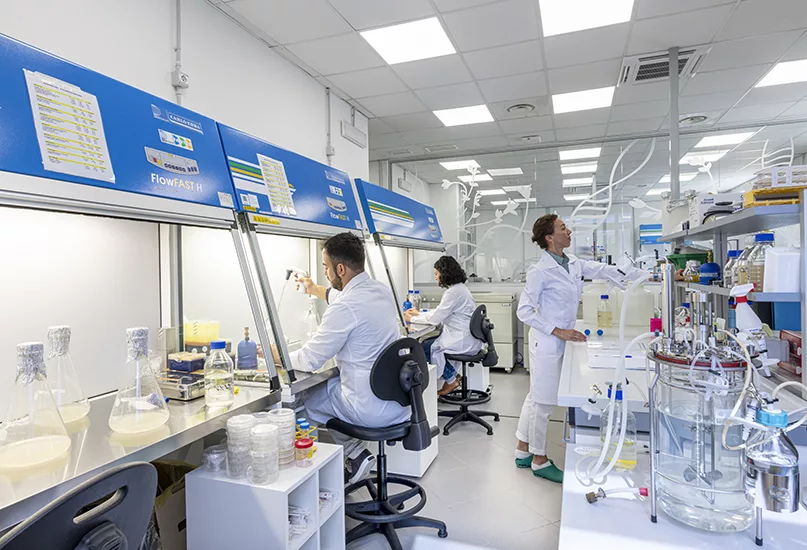
On the other hand, what are the industry’s biggest challenges?
PP: Our country needs to have a clear vision for the future and must find a way to quickly untie all the knots along the journey, from the inception of an idea to its transformation into an innovative solution.
Elements that are closely connected, including training, research, technology transfer, entrepreneurial skills, the creation and development of start-ups and small and medium-sized companies, production and clinical development, public-private partnerships, access, but also lean processes and reducing bureaucracy, must be able to interact in a dynamic way.
Our biggest challenge currently, however, is to create an industrial national plan for the development of our strategic sector. The news of a National Plan for Biotechnology in Italy is very recent. It was announced by Minister Adolfo Urso on 31st May this year, at our General Assembly. This is an important recognition of the strategic value of this meta-sector. We hope that it could be an opportunity to unleash the full potential of BioTech in Italy.
How has the BioTech industry changed since the association’s inception?
PP: Over the last 30 years, we have seen the BioTech industry grow exponentially. The main economic data of the firms operating in this sector provide a clear picture of an industry which has withstood the crisis in all its fields of application, and not only in the traditionally counter-cyclical ones linked to the human health sector.
The vibrant ecosystem of small and micro BioTech firms, which complements the stable core of big companies and focuses on the development of new technologies and products, represents an 82 percent share of the total firms.
However, small and micro firms are pivotal in creating new jobs. Up to 65 percent of total gross job creation in 2020 can be attributed to the Innovative start-ups, as defined by the Italian policy framework, although their share in total BioTech employment in the same year was only six percent.
With reference to the distribution per field of predominant application, the human healthcare sector – “red BioTech” – still represents the majority share of Italian BioTech companies (48.5 percent). However, the industrial BioTech share of firms – “white Biotech”– increased by 29 percent between 2014 and 2021, whilst agriculture and veterinary BioTech – “green BioTech” – increased by 34.5 percent in the same period.
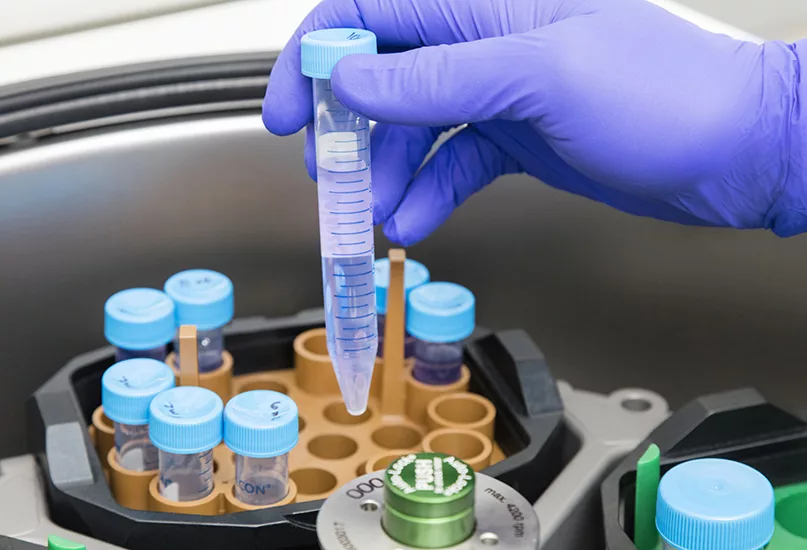
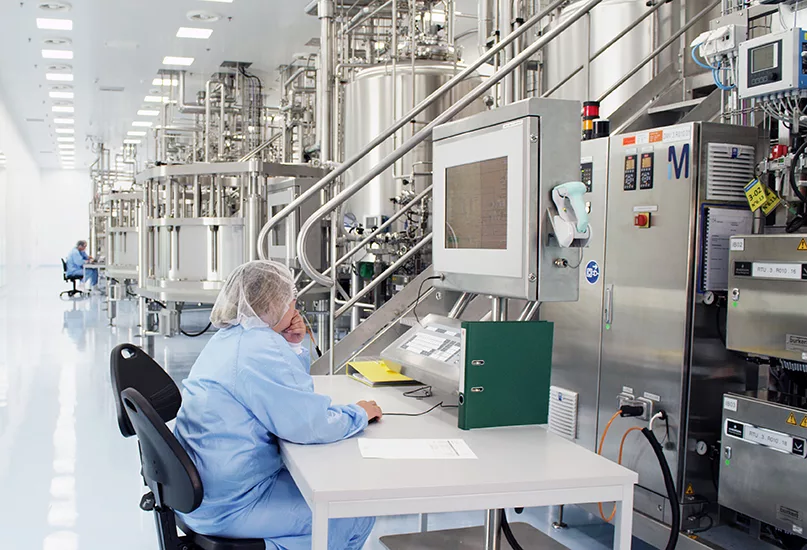
Can you elaborate on how the COVID-19 pandemic affected the industry?
PP: The recent COVID-19 pandemic has shown how BioTech has been more than a solution to health needs. The sector has represented a key element in the geopolitical and economic strategies of the country. Vaccines, monoclonal antibodies, and diagnostics products are all BioTech solutions, and they were fundamental to overcoming COVID-19.
As reported by the BioInItaly Report 2022, the Italian BioTech industry has withstood the health crisis caused by the COVID-19 pandemic, recording only a five percent drop in the overall 2020 turnover (less than half of the overall Italian industrial sector). In addition, the nationally controlled BioTech R&D dedicated firms increased by 30 percent in 2020, greatly increasing their turnover, particularly compared to the seven percent growth witnessed in 2019.
What trends are currently transforming the BioTech industry in Italy?
PP: Italy is no different from the rest of the world in the sense that we can see some megatrends in human health, including the development of immunotherapies, advanced therapies and precision medicine, which are the key to the future of medical care.
A further fundamental point is the increasingly widespread awareness that the health of the population is strongly related to the health of our planet. Thus, the winning approach is ‘One Health’, which holistically considers the health of humans, animals and the environment.
The COVID-19 pandemic highlighted that if we want to deal effectively with the health of individuals and populations, we must also think about our planet and the better use and consumption of soil, water and air. Protecting the environment means saving ourselves.
In the pursuit of this objective, BioTech companies represent a tool of great importance and a perspective of extreme interest. The field can make an important contribution to sustainable development, as well as an economy that respects the environment and is less dependent on fossil fuels and non-renewable resources.
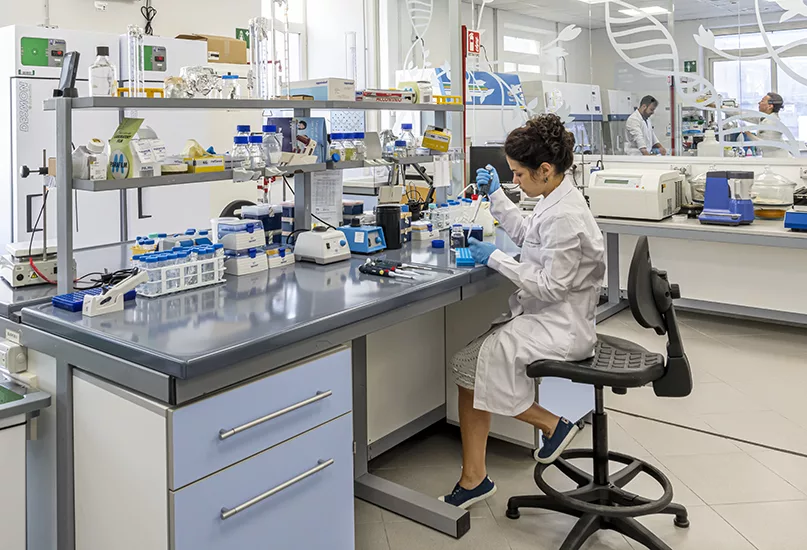
How do you see Federchimica Assobiotec and the BioTech industry developing over the next five years?
PP: According to the Organisation for Economic Co-operation and Development (OECD) estimates, by 2030, BioTech will have an enormous weight on the world economy: 80 percent of pharmaceutical products, 50 percent of agricultural products, and 35 percent of chemical and industrial products will be BioTech.
The acceleration in the development of BioTech today makes it possible to aim for goals that were once unimaginable, such as therapies for unmet medical needs, personalised therapies, preservation of biodiversity, plants that fight against climate change, and increasing production with less natural resources. We also hope to work on the development of a production system based on alternative energy sources, bioproducts, and processes with no environmental impact, looking in particular at a circular bioeconomy model.
A recent study commissioned by Ernst & Young (EY) tells us that the European BioTech market will triple between now and 2028, creating value and new opportunities that Italy wants to be in the flow of.
Thus, we believe BioTech represents one of the greatest opportunities for the development of knowledge, the economy, and well-being in the coming decades.



